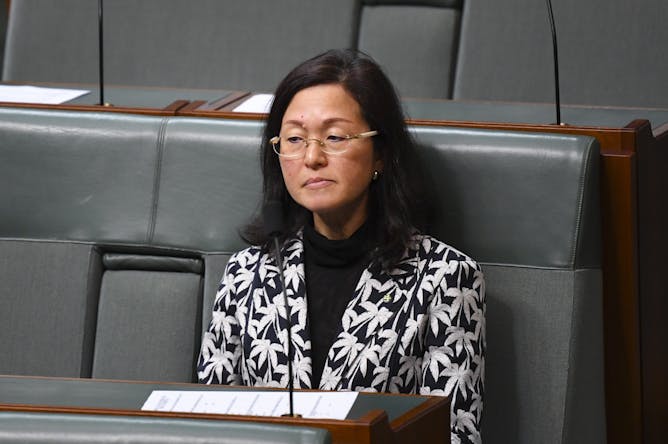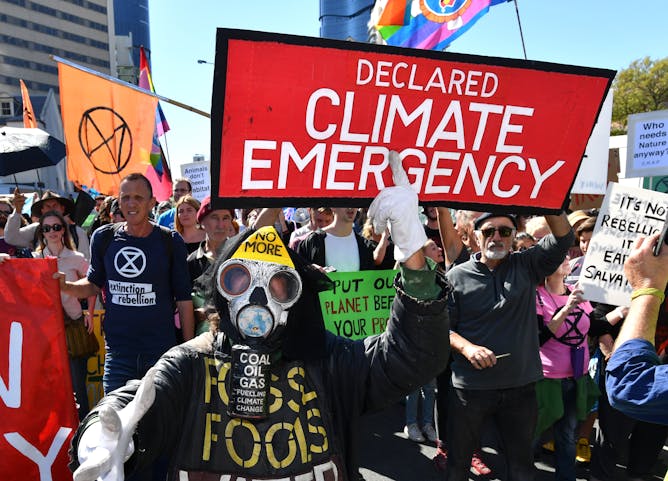|
|
|
Editor's note
|
|
Women may find it harder to get an abortion if the Religious Discrimination Bill, which is due to be introduced to parliament in October, becomes law. That’s because health practitioners with an objection to performing the procedure on religious grounds may have stronger legal protection. They may also not have to refer women to an alternative provider.
As Elizabeth Shi and Ariella Gordon from RMIT University write, this could mean women have to shop around to find another doctor willing to perform the procedure.
The implications go wider still. If the current bill passes into law, the researchers say pharmacists and nurses can also object to being involved in abortion services on religious grounds. That means more women may potentially face delays.
|
Anna Evangeli
Deputy Editor: Health+Medicine
|

|
|
Top stories
|

Women may need to shop around for a new doctor if the first one refuses to perform an abortion for religious reasons.
from www.shutterstock.com
Elizabeth Shi, RMIT University; Ariella Gordon, RMIT University
Doctors who won't perform abortions on religious grounds may have stronger legal protection and may not be compelled to refer women to an alternative provider. Here's why that's bad news for women.
|

There are legitimate questions about Liu’s past connections to associations with direct or indirect links with the Chinese Communist Party.
Lukas Coch/AAP
Michelle Grattan, University of Canberra
Liu's disastrous interview on Sky News forced the government into a full scale defence of her, saying that Labor, in pursuing her, was being “xenophobic” and “grubby”.
|

The Greens and independent MPs are pushing for Australia to declare a national ‘climate emergency’, in line with several other nations.
Darren England/AAP
David Holmes, Monash University
Because climate change is so heavily politicised, the declaration of a national emergency would be a disaster for the major parties – and for bringing greater awareness to the problem.
|
|
|
Environment + Energy
|
-
John Quiggin, The University of Queensland
The state of Australia's energy and climate change policy is reason to despair. But there may be a nuclear solution that keeps both sides happy.
-
Alan Finkel, Office of the Chief Scientist
Australia's top scientist Alan Finkel says too many poor quality research papers are being published in Australia, and the system may inadvertently encourage academics to behave badly.
|
|
Arts + Culture
|
-
Darius Sepehri, University of Sydney
There is so much more to Iran than politics. Its traditional music carries messages of beauty, joy, sorrow and love to the world.
-
Jessica Balanzategui, Swinburne University of Technology
The complex user-generated nature of YouTube content for kids is proving difficult to control for the online giant, who have been issued with a US$170 million fine for breaching children's privacy.
|
|
Science + Technology
|
-
Tomer Ventura, University of the Sunshine Coast
Entire populations of prawn 'super-females' are now being commercially distributed. The science behind this continues to advance and could have a far-reaching impact on both humans and animals.
|
|
|
|
Cities
|
-
Fleur Palmer, Auckland University of Technology
As part of an upgrade of Auckland's city centre, the council promises to include local Māori communities and their histories. But without addressing inequalities, it is no more than a token gesture.
|
|
Health + Medicine
|
-
Tim Chambers, Imperial College London
Despite repeated calls for an overhaul of New Zealand's marketing regulations to protect children from exposure to ads for unhealthy products, successive governments have failed to act.
-
Giselle Rees, Macquarie University
People with sexual fetishes aren't dangerous; nor are their desires a sign of mental illness. Fetishism can be part of a healthy relationship – so it's time to lose the stigma.
|
|
Politics + Society
|
-
Elizabeth Strakosch, The University of Queensland; Alissa Macoun, The University of Queensland; Chelsea Bond, The University of Queensland; David Singh, The University of Queensland; Zoe Staines, The University of Queensland
When it comes to improving Indigenous policies and programs, Indigenous communities should be the ones evaluating government – rather than the other way around.
|
|
| |
Featured jobs
|

|
MRIWA — Perth, Western Australia
|

|
University of Melbourne — Parkville, Victoria
|

|
RMIT University — Melbourne, Victoria
|

|
CSIRO — Kensington, Western Australia
|
|
|
|
Featured events
|

|
Learning and Teaching building, 19 Ancora Imparo Way, Clayton campus, Monash University, Clayton, Victoria, 3800, Australia — Monash University
|

|
Learning and Teaching building, 19 Ancora Imparo Way, Clayton campus, Monash University, Clayton, Victoria, 3800, Australia — Monash University
|

|
Deakin Edge, Federation Square, Cnr Flinders & Swanston Streets, Melbourne, Victoria, 3000, Australia — Deakin University
|

|
Doherty Institute for Infection and Immunity, Melbourne, Victoria, 3000, Australia — University of Melbourne
|
|
|
|
| |
| |
| |
| |
| |
|
|
|
|
|
|
|